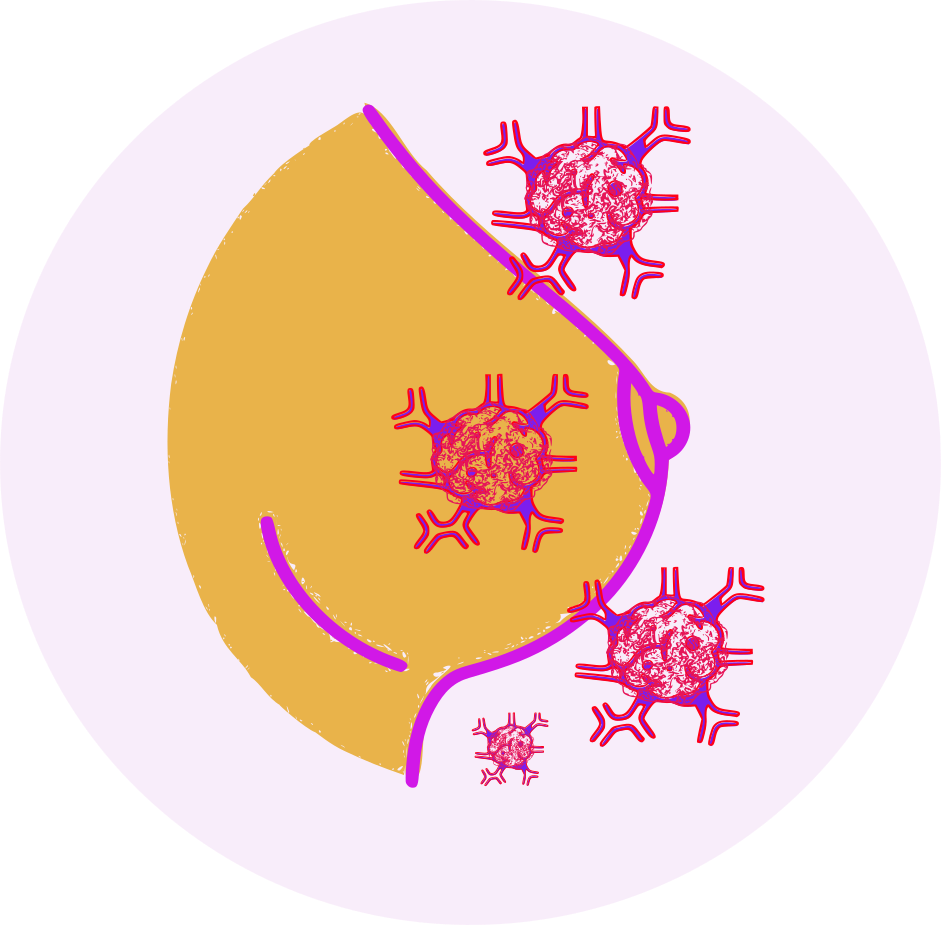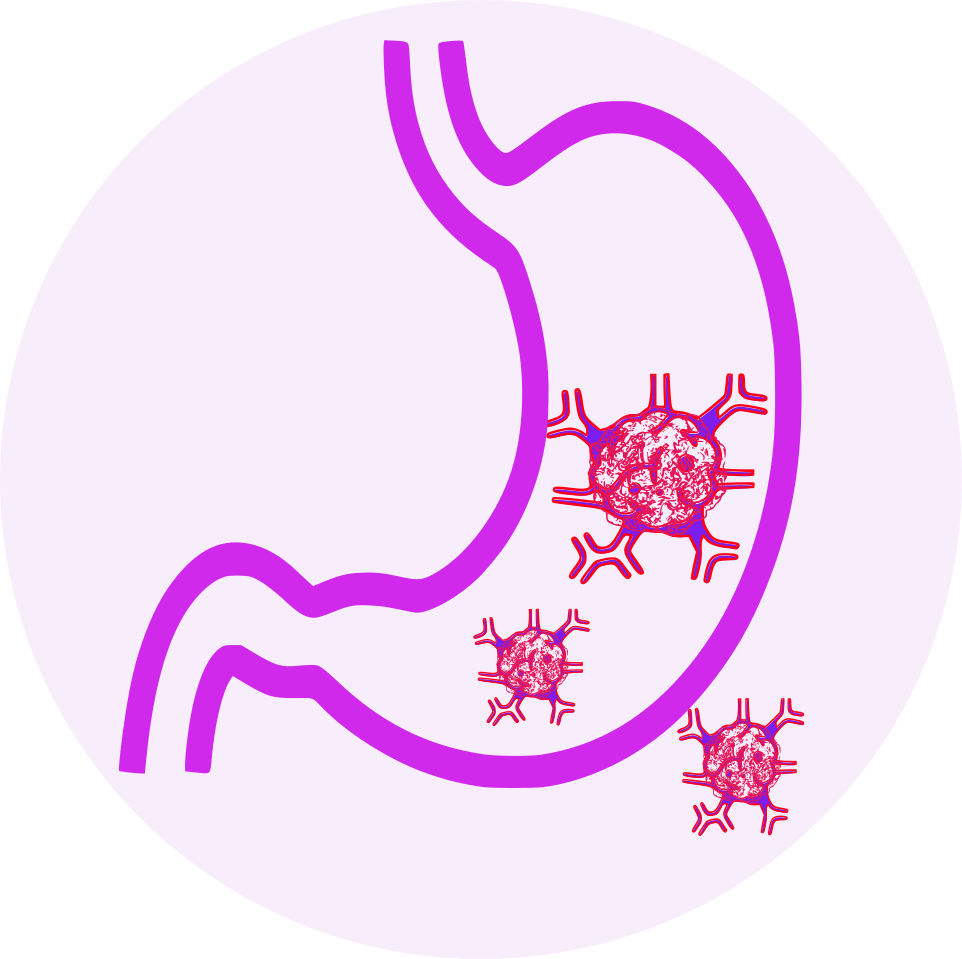| Name | Trustuzumab |
| Classes |
Anticancer/Antineoplastic Agent HER2 Inhibitor |
| Diseases |
Breast Cancer Cancer Gastric Cancer |
Trustuzumab
Trastuzumab is a monoclonal antibody used to treat neoplastic diseases. The HER2 (or c-erbB2) proto-oncogene encodes a transmembrane receptor protein, which is structurally related to the epidermal growth factor receptor. Herceptin has been shown, in both in vitro assays and in animals, to inhibit the proliferation of human tumor cells that overexpress HER2.
Trastuzumab is a HER2/neu receptor antagonist indicated for:
- the treatment of HER2 overexpressing breast cancer
- the treatment of HER2-overexpressing metastatic gastric or gastroesophageal junction adenocarcinoma
Adjuvant Treatment of HER2-Overexpressing Breast Cancer
- Administer at either, Initial dose of 4 mg/kg over 90 minute IV infusion, then 2 mg/kg over 30 minute IV infusion weekly for 52 weeks
- Or Initial dose of 8 mg/kg over 90 minutes IV infusion, then 6 mg/kg over 30−90 minutes IV infusion every three weeks for 52 weeks.
Metastatic HER2-Overexpressing Breast Cancer
- Initial dose of 4 mg/kg as a 90 minute IV infusion followed by subsequent weekly doses of 2 mg/kg as 30 minute IV infusions.
Metastatic HER2-overexpressing Gastric Cancer
- Initial dose of 8 mg/kg over 90 minutes IV infusion, followed by 6 mg/kg over 30 to 90 minutes IV infusion every 3 weeks.
Most common side effects are-
Adjuvant Breast Cancer: headache, diarrhea, nausea, and chills.
Metastatic Breast Cancer: fever, chills, headache, infection, congestive heart failure, insomnia, cough, and rash.
Metastatic Gastric Cancer: neutropenia, diarrhea, fatigue, anemia, stomatitis, weight loss, upper respiratory tract infections, fever.
Cardiomyopathy: Trastuzumab administration can result in sub-clinical and clinical cardiac failure. The incidence and severity was highest in patients receiving Trastuzumab with anthracycline-containing chemotherapy regimens.
Infusion Reactions & Pulmonary Toxicity: Trastuzumab administration can cause severe and fatal infusion reactions as well as pulmonary toxicity. Symptoms usually appear within 24 hours of receiving Trastuzumab. In the event of dyspnea or clinically significant hypotension, discontinue Trastuzumab infusion. Patients should be closely monitored until their symptoms have completely resolved. If you experience anaphylaxis, angioedema, interstitial pneumonitis, or acute respiratory distress syndrome, you should stop taking Trastuzumab.
Embryo-Fetal Toxicity: When given to a pregnant woman, Trastuzumab can cause fetal harm. According to post-marketing case reports, Trastuzumab use during pregnancy increases the risk of oligohydramnios in the second and third trimesters. If Trastuzumab is used during pregnancy, or if a woman becomes pregnant while taking Trastuzumab, she should be informed of the potential fetal risk.
Contraindication
Contraindicated in patients hypersensitive to Trastuzumab.
None known.
None known.
 Bangla
Bangla English
English




